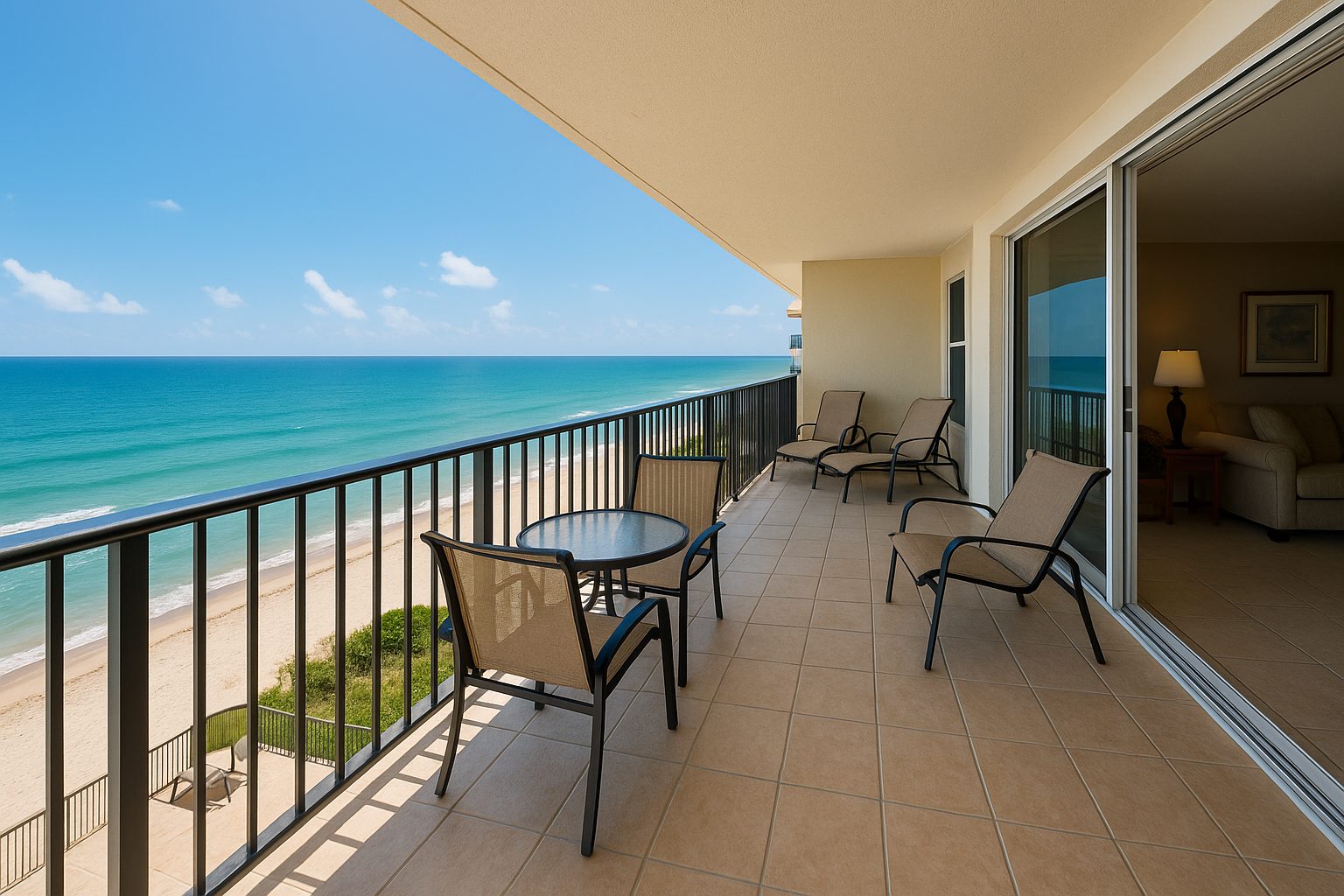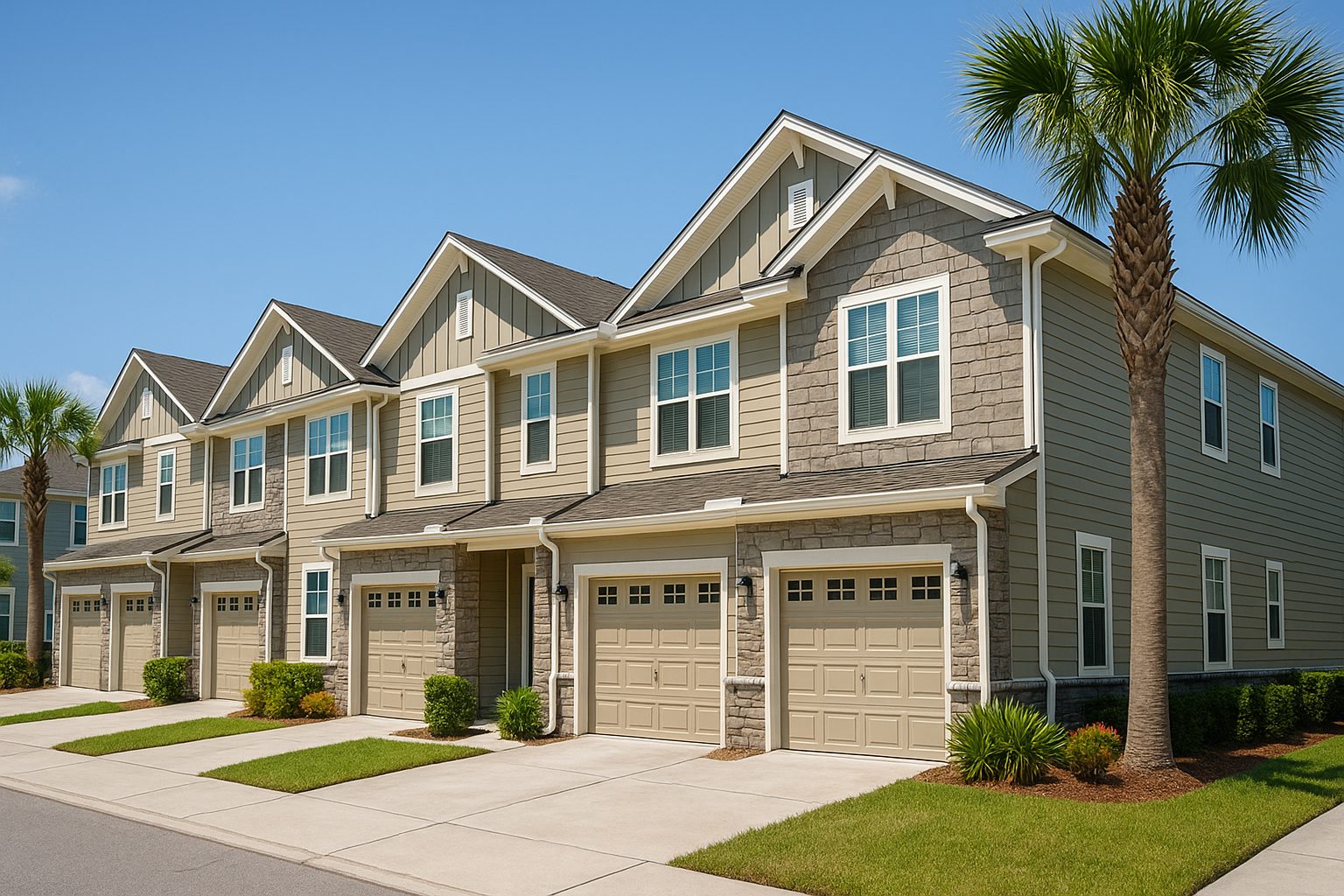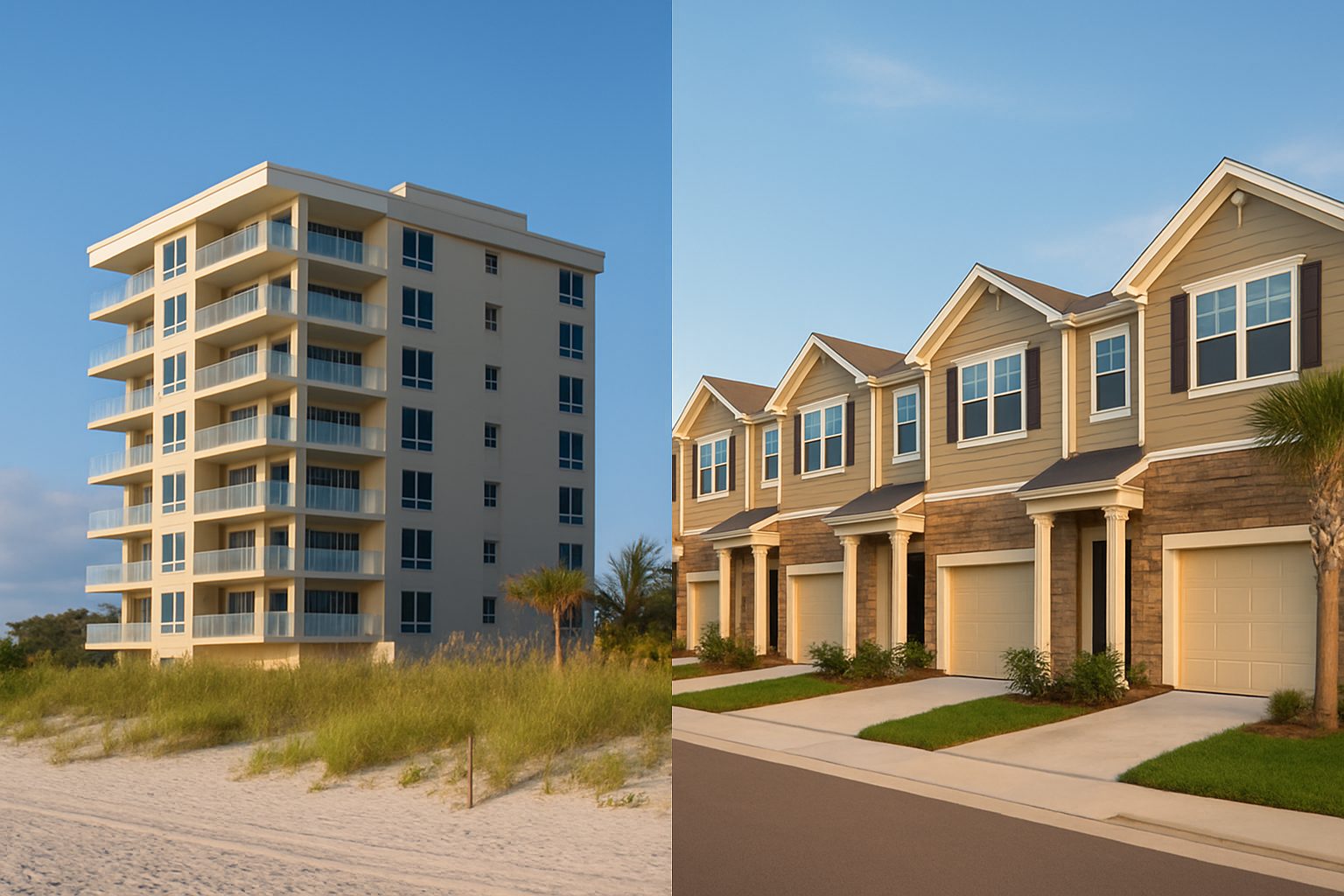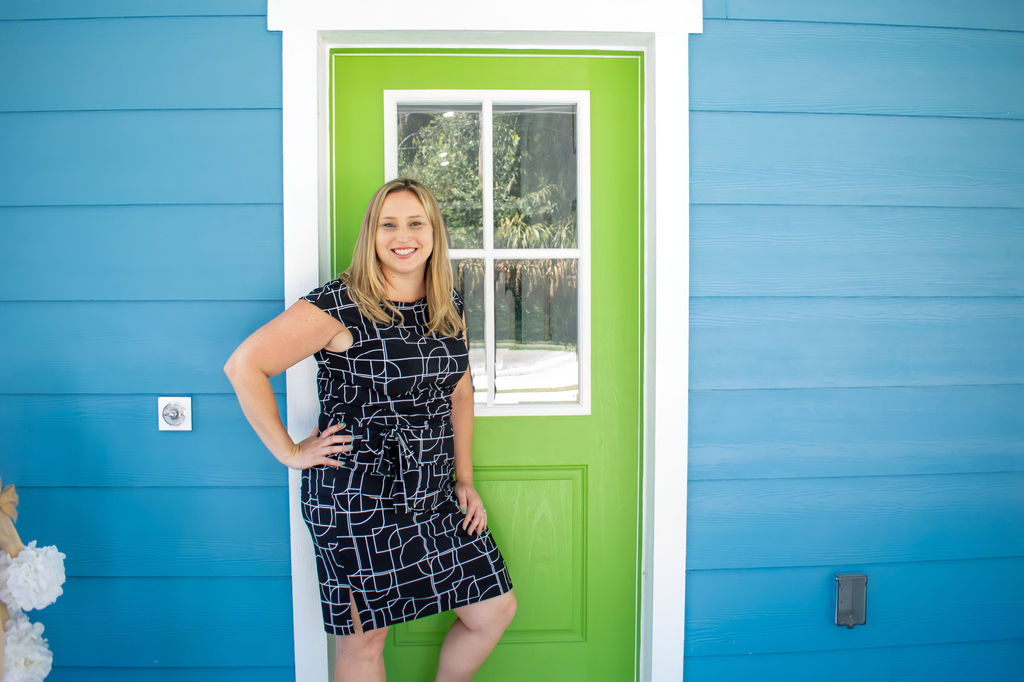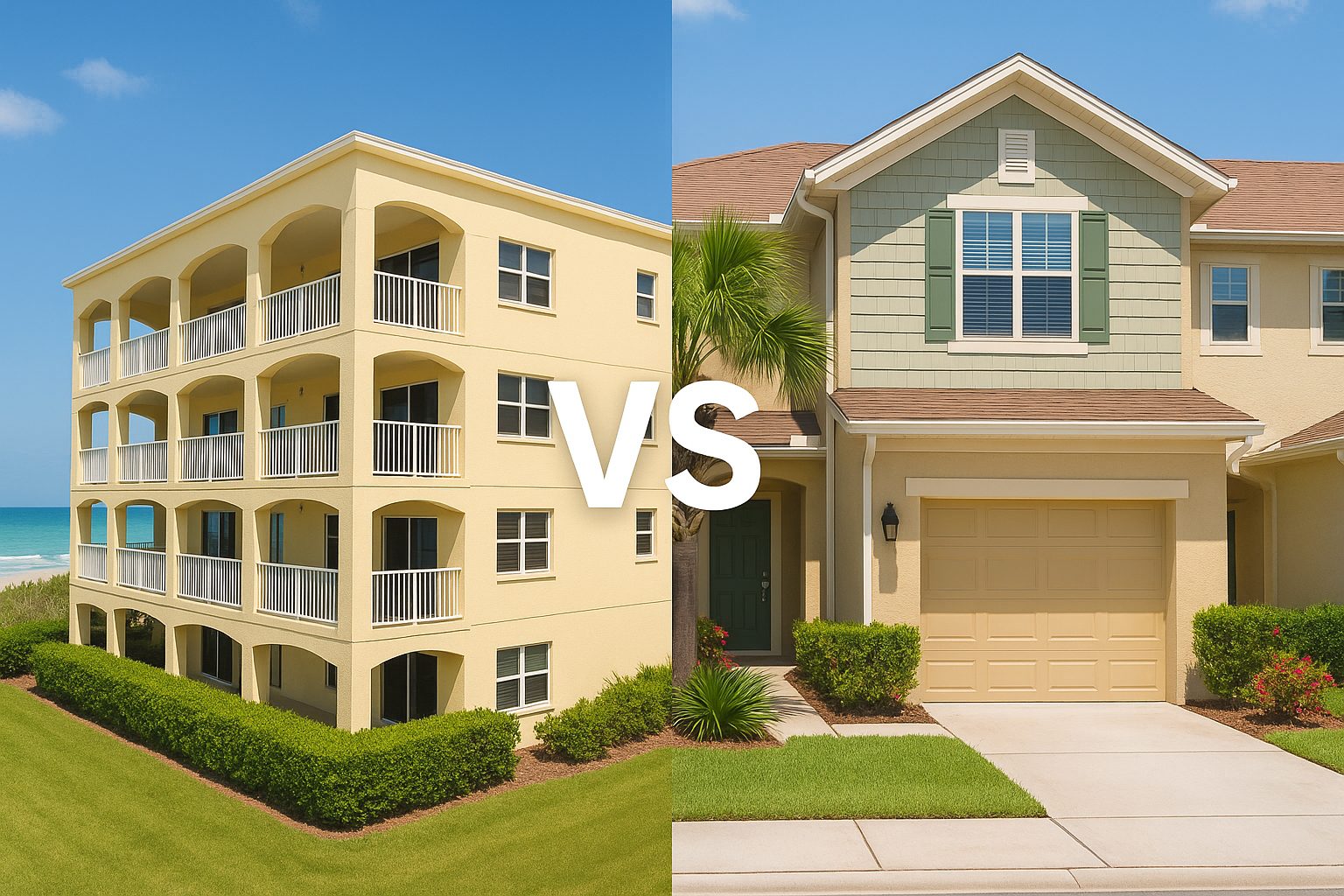
Whether you’re buying your very first place or right-sizing for a simpler lifestyle, you’ll quickly run into the classic question: Condo vs. Townhouse—which is better for you in Central Florida? Below I break down the real differences in ownership, construction, fees, insurance, financing, and day-to-day living so you can decide with confidence.
Fast Check
| Feature | Condo | Townhouse |
|---|---|---|
| Ownership | Air-space ownership of the unit interior; association owns building & grounds | You own the structure (walls/roof) + the land under it (lot) |
| Exterior Maintenance | Mostly covered by the association | Often owner’s responsibility (varies by HOA) |
| Insurance | Typically HO-6 policy + association’s master policy | Typically HO-3 homeowners policy |
| Fees | Usually higher; cover more (building, roof, amenities) | Usually lower; cover common areas & amenities |
| Privacy | Stacked neighbors (above/below) | Only share side walls (end units = 1 wall) |
| Financing | Lender reviews the condo association | Property-centric underwriting is more typical |
Pros & Cons
Condo: Pros
-
Low exterior maintenance – Association handles roof, exterior, and grounds, freeing your weekends.
-
Amenities – Pools, gyms, security, elevators—often more robust than townhouse communities.
-
Entry price – In many areas, condos can offer a lower purchase price for similar locations.
Condo: Cons
-
Higher monthly fees – Fees often include reserves, insurance for the building, and amenities.
-
Association rules – Pet limits, rental caps, and renovation restrictions can be tighter.
-
Financing hurdles – Lenders evaluate the condo association’s financial health, occupancy ratios, reserves, and any litigation, which can affect loan options and rates.
Townhouse: Pros
-
More privacy & space – Typically no one above or below you; many have private yards or patios.
-
You control your structure – Greater freedom to modify your exterior (within HOA guidelines).
-
Easier financing – Often underwritten like single-family homes, broadening loan programs.
Townhouse: Cons
-
More maintenance – You may be responsible for roof, exterior paint, and yard (varies by HOA).
-
Amenities vary – Communities may offer fewer amenities than comparable condos.
-
Insurance responsibility – Your policy usually covers the full structure, which can cost more than an HO-6.
3 Key Construction & Ownership Differences
-
What you own
-
Condo: You own the “air space” within your walls; the association owns the building exterior, roof, and common areas.
-
Townhouse: You typically own the structure and the land beneath it (fee simple), plus a share in common areas.
-
-
Walls, Roof & Sound
-
Condo buildings are often multi-story with stacked neighbors and shared ceilings/floors. Concrete or steel frames in mid/high-rises may offer better sound isolation than wood-frame garden condos, but it varies.
-
Townhouses share side (party) walls only; fewer vertical neighbors can improve privacy and noise control.
-
-
Systems & Maintenance Path
-
Condo: Roof, exterior, and often major systems serving common areas fall to the association; interior systems (A/C air handler inside your unit, plumbing/fixtures, appliances) are yours.
-
Townhouse: You’re usually on the hook for roof, exterior, and yard, plus all interior systems—so inspection scope and post-closing maintenance planning matter more.
-
Costs, Fees & Insurance (Central Florida Snapshot)
-
Monthly Fees:
-
Condos: Typically higher; can include building insurance (master policy), reserves, exterior, roof, elevators, amenities, water/sewer/trash (varies).
-
Townhouses: Often lower; may cover front-yard care, community pool, gates, and common areas.
-
-
Insurance:
-
Condo buyers usually carry an HO-6 (“walls-in”) policy. The association’s master policy typically covers the structure.
-
Townhouse buyers typically carry HO-3 homeowners insurance covering the entire structure + liability.
-
-
Special Assessments & Reserves:
-
Condos may levy special assessments for capital projects (roof, elevators, concrete, balconies). Healthy reserves are a good sign.
-
Townhouse HOAs tend to have smaller common-area obligations, but still review reserves and budget.
-
Lending & Approval Tips
-
Condo loans: Lenders review the association questionnaire (budget, reserves, owner-occupancy %, litigation, insurance). If a community is non-warrantable, financing options can narrow and rates may differ.
-
Townhouse loans: Often resemble single-family underwriting; lender focuses mainly on the property and you, not an association’s balance sheet.
Pro tip: Get your lender and Realtor® aligned early. I’ll gather the condo docs (budget, reserves, master insurance) and HOA info right away so underwriting is smooth.
Who Typically Chooses What?
-
Choose a Condo if you want: lock-and-leave lifestyle, elevator buildings, robust amenities, minimal exterior maintenance.
-
Choose a Townhouse if you want: more privacy, a small yard or patio, garage options, and greater control over your structure.
FAQs
1) What’s the main difference between a condo and a townhouse?
Ownership & structure. Condos are “walls-in” ownership in a shared building; townhouses are fee simple—structure + land.
2) Are condo fees always higher than townhouse HOA fees?
Not always, but often. Condos typically include more (building insurance, elevators, reserves, major exterior items).
3) Which is easier to finance: condo or townhouse?
Townhouses are often easier. Condos require an association review that can affect loan options.
4) Which is better for noise: condo or townhouse?
Depends on construction. Concrete mid-rises can be quiet; wood-frame garden condos vary. Townhouses have no upstairs/downstairs neighbors, which many buyers prefer.
5) What insurance do I need?
Condo: HO-6. Townhouse: HO-3. I’ll help you (and your insurance pro) scope the right coverage for the community type.
On-Market Strategy (How I Help)
-
Document review: Budget, reserves, insurance, rules (pet/rental), and any pending or recent special assessments.
-
Inspection focus: Sound transmission, windows/doors, roof age (townhouses), HVAC age & location, plumbing stacks (condos), balconies/railings (if applicable).
-
Cost mapping: Monthly fees + utilities + insurance + reserve posture to avoid surprises.
-
Negotiation & timing: Leverage association health and inspection findings to protect your budget and timeline.
Ready to Compare Condos & Townhouses in Central Florida?
-
Search homes: Go to HappyHeatherHomes.com and use the search bar to explore condos and townhouses (filter by property type).
-
Order your free Equity Report: On my site, click “Equity Report” (or “Home Valuation”) to see what your current home could fetch in today’s market. Every penny counts for your next purchase!
-
Let’s talk: Call/text 407-399-4337 or message me on Facebook.
-
See client reviews: Check me out on RateMyAgent to read verified reviews and results.
I’m Heather Oleson (Happy Heather)—Broker Associate, Central Florida Realtor®, new-construction specialist, and former Orange County Property Appraiser field appraiser. I’ll make the process clear, confident, and (dare I say) fun. Always Happy to Help!



 Facebook
Facebook
 X
X
 Pinterest
Pinterest
 Copy Link
Copy Link
